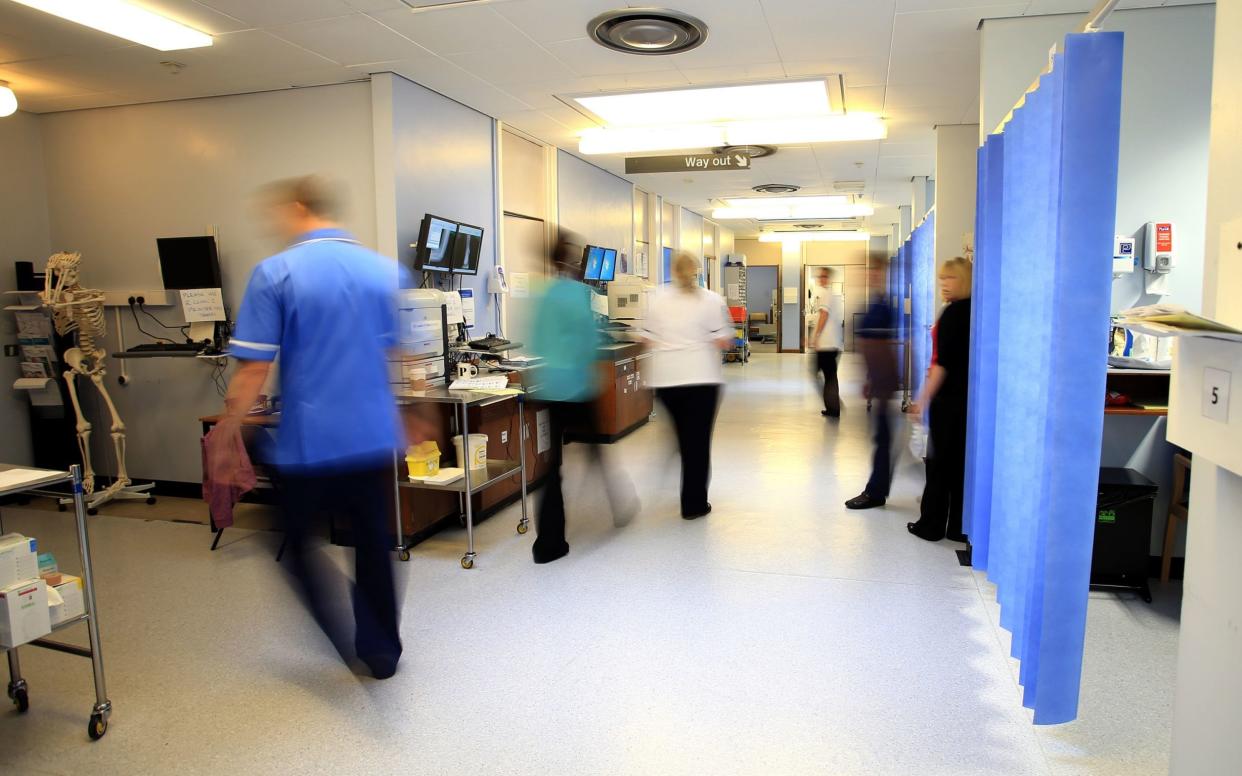SNP ‘risking patient safety’ by accepting NHS union’s reduced working demands

The SNP has been accused of putting patient safety at risk after agreeing to union demands to slash working hours for thousands of NHS staff.
The Scottish Government has agreed to reduce the working week by 30 minutes for around 150,000 health service workers, including nurses, paramedics, hospital managers and porters, from next month.
The move to a 37-hour week would help the Scottish health service become “a leader in flexible and family-friendly working practices,” said Neil Gray, the SNP Health Secretary.
However, it has caused an outcry among NHS bosses who said the half-hour reduction was the equivalent of slashing almost 10,000 full-time jobs.
The cut to hours comes as the Scottish NHS faces a crisis, with A&E waiting times at record highs, cancer targets being routinely missed and all building projects being put on hold for at least two years due to cash shortages.
Last year, the vast majority of the staff who will work fewer hours were also handed a pay rise of at least 6.5 per cent, as part of SNP efforts to avoid industrial action.
‘Standing by while chaos looms’
Dame Jackie Baillie, Scottish Labour’s health spokesman, said the changes “threaten to cause more turmoil” in the health service as there had been no time to plan for them.
“This is Neil Gray’s first test as health minister and so far he appears to be standing idly by while chaos looms,” she said.
“Once again NHS staff, patients and taxpayers are set to pay the price for the SNP’s appalling failures in workforce planning.”
In cases where staff cannot receive a 30 minute reduction due to “service pressures, safe staffing or wellbeing issues,” health boards have been told workers must be “recompensed accordingly” until their hours can be cut
This means that for an employee on the highest pay band, of £116,428, they would receive a pay rise of more than £1,500 per year, in compensation for maintaining their current hours.
A briefing prepared by the chief executives of NHS Scotland health boards warned that it was “difficult to foresee” how the reduction would be possible for some critical staff “whilst ensuring health boards remain compliant with their legal obligations” around safe staffing.
The document, first reported by The Times, warned ministers that reducing the working week would have an “immediate” impact on patient safety and the quality of care.
It warned the plan “will bring risks to safe staffing of clinical or essential support services” as well as a “significant risk to our ability to pay staff correctly for hours worked”.
Civil servant ‘chill-out’ hour
It follows a similar move by Scottish Government civil servants, who have been handed a “chill-out” hour that cuts their annual working week to 36 hours with no drop in pay.
Public bodies across the country have been urged to standardise a 35-hour working week and to “explore” allowing staff to work only four days.
Agreeing the deal to cut working hours is the first major change implemented by Mr Gray, whose predecessor Michael Matheson had been reluctant to sign off on the changes.
Mr Matheson quit last month amid a scandal over charging the taxpayer for £11,000 in overseas roaming charges that were racked up on his parliamentary iPad by his sons while on holiday.
Mr Gray is said to have blindsided NHS leaders by agreeing to the trade union demands, without health service officials present.
When challenged over turmoil in the Scottish health service, the SNP has typically pointed to its success in avoiding the strike action seen in England.
The move to cut the working week follows the agreement with unions last year, in which it was agreed that, alongside a large pay rise, a drop in working hours would be examined.
The changes do not apply to the most senior managers or doctors and dentists, who fall under a separate pay structure.
Mr Gray said: “This presents an opportunity to modernise how staff are rostered and work, ensuring that NHS Scotland is a leader in flexible and family-friendly working practices.
“I am grateful to both Trade Union and Employer representatives for working in partnership with us to develop these reforms to help modernise our service.”

 Yahoo News
Yahoo News 
